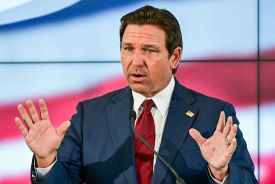Harvard President Claudine Gay To Retain Position Amid Antisemitism Hearings in Congress
ByIn a recent meeting, Harvard University's governing body, the Harvard Corporation, announced its continued support for President Claudine Gay despite intense criticism surrounding her response to antisemitism on campus. The controversy unfolded following her testimony at a congressional hearing, which delved into the handling of antisemitism during the Israel-Hamas conflict.

The Congressional Hearing and Bipartisan Criticism
The bipartisan criticism stemmed from Gay's response to whether discussing the genocide of Jews would violate Harvard policies. Instead of providing a straightforward "yes," she emphasized that antisemitic rhetoric crossing into actionable conduct, such as bullying or harassment, would lead to appropriate measures. This response triggered calls for her removal from both lawmakers and influential alumni.
Harvard's board acknowledged Gay's missteps during the testimony but expressed confidence in her leadership, stating, "Our extensive deliberations affirm our confidence that President Gay is the right leader to help our community heal."
The controversy escalated when New York Republican Rep. Elise Stefanik announced investigations into Harvard, MIT, and Penn. The University of Pennsylvania's President, Liz Magill, resigned in response to similar critiques, marking a different outcome compared to Gay's retention.
Read also: News Update: Presidents Of Harvard, MIT, UPenn Asked To Resign Due To Antisemitism On Campuses
Diverse Reactions and Support for Gay
Gay, Harvard's first Black president, faced both support and opposition. Notably, 700 faculty members and Black faculty members signed petitions in favor of her presidency. Harvard's most prominent alumni group unanimously backed Gay, emphasizing that accusations of her selection based on race and gender were unfounded.
Student opinions on campus appeared less engaged in the leadership debate. Some expressed support for Gay, highlighting her challenging position and the need for her to settle into her role. Freshman Jacob Winter commended Gay for her commitment to free speech and cautioned against holding her to unrealistic standards of perfection.
The controversy also touched upon concerns about the integrity of Gay's academic work. The Harvard board addressed accusations regarding her dissertation, revealing a few instances of inadequate citation in three published articles. While the review found no violation of Harvard's standards for research misconduct, Gay proactively requested corrections.
Stefanik's Critique and the Ongoing Debate
Stefanik criticized Gay's retention, stating that there were no updates to Harvard's code of conduct condemning calls for genocide. The controversy extended to concerns about possible plagiarism in Gay's scholarship, with some dismissing it as issues of attribution.
The Harvard Corporation, the university's top governing body, plays a crucial role in affirming its support for Gay. The decision reflects the complex dynamics surrounding leadership, free speech, and responses to antisemitism on college campuses. The broader context involves a nationwide scrutiny of how U.S. universities handle campus protests and allegations of discrimination since the Israel-Hamas conflict. Several universities, including Stanford, Rutgers, Tulane, Harvard, and Penn, are under investigation by the U.S. Department of Education for possible ethnic discrimination, particularly regarding antisemitism and discrimination against other groups.
As the controversy at Harvard unfolds, it raises important questions about the balance between free speech, academic freedom, and addressing instances of hate speech on college campuses. The decisions made by university leaders in response to these challenges will likely shape the ongoing conversation about how institutions navigate societal issues while upholding their commitment to education and inclusivity.
© 2025 University Herald, All rights reserved. Do not reproduce without permission.








